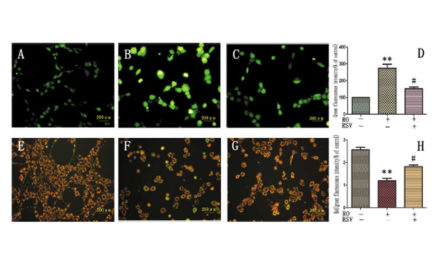Apigenin enhances apoptosis induction by 5-fluorouracil through regulation of thymidylate synthase in colorectal cancer cells
Changwon Yang a,1, Jisoo Song b,1, Sunjae Hwang c, Jungil Choi c, Gwonhwa Song a,**, Whasun Lim b,*
a Institute of Animal Molecular Biotechnology and Department of Biotechnology, College of Life Sciences and Biotechnology, Korea University, Seoul, 02841, Republic of Korea
b Department of Food and Nutrition, College of Science and Technology, Kookmin University, Seoul, 02707, Republic of Korea
c School of Mechanical Engineering, Kookmin University, Seoul, 02707, Republic of Korea
Abstract
Although effective drugs have been developed, including 5-fluorouracil (5-FU), advanced colorectal cancer (CRC) shows low therapeutic sensitivity resulting from the development of 5-FU resistance. Thymidylate synthase (TS) is a target protein of 5-FU, and elevated TS lowers the 5-FU sensitivity of CRC cells. Here, we tested the efficacy of several candidate phytochemicals against human CRC-derived HCT116 cells expressing wild-type tumor suppressor protein P53 and HT29 cells expressing mutant P53. Among them, we found that apigenin enhanced the inhibitory effect of 5-FU on cell viability. In addition, apigenin inhibited the upregulation of TS induced by 5-FU. Apigenin also potentiated 5-FU-induced apoptosis of HCT116 cells and enhanced cell cycle disruption. Furthermore, apigenin increased reactive oxygen species production, intracellular and intramitochondrial Ca2+ concentrations, and mitochondrial membrane potential upon cotreatment with 5-FU. Knockdown of forkhead box protein M, a transcription factor modulating 5-FU sensitivity, enhanced the potentiation of apoptosis by apigenin in HCT116 cells. Moreover, apigenin suppressed TS expression and inhibited the viability of 5-FU-resistant HCT116 cells. Therefore, apigenin may improve the therapeutic efficacy of 5-FU against CRC by suppressing TS, but apoptosis induction is mainly dependent on functional P53.
Keywords
Apigenin, Thymidylate synthase, P53 Colon cancer Chemoresistance







